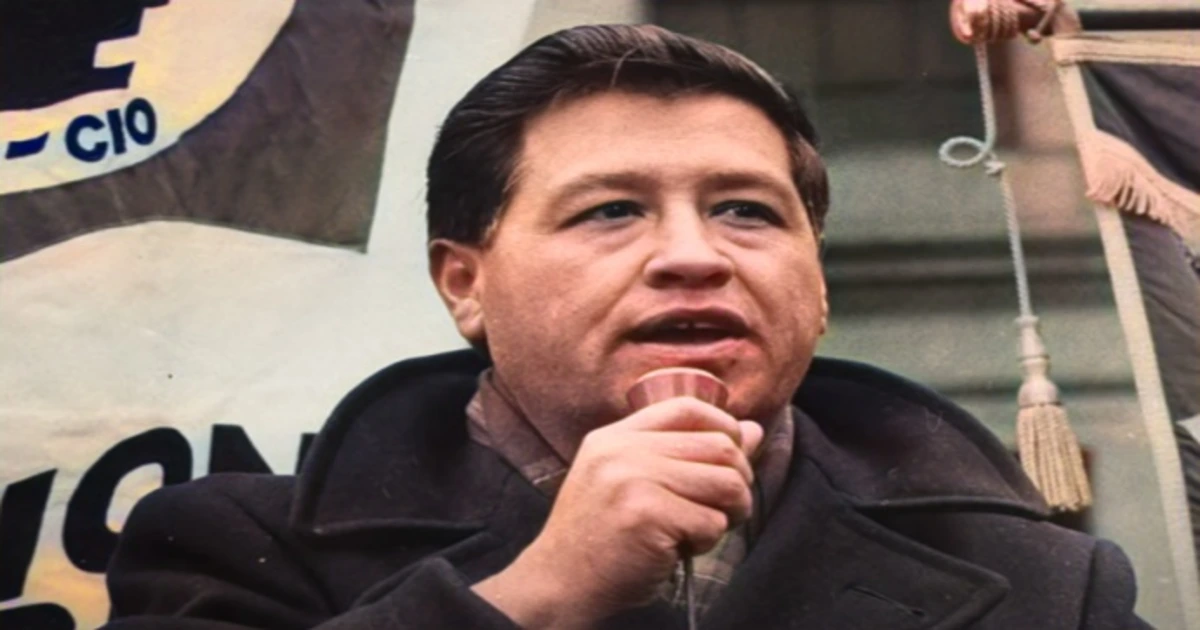César Chávez remains a towering figure in the history of American labor and civil rights movements. As a co-founder of the United Farm Workers (UFW) union, Chávez’s dedication to improving the working conditions of migrant laborers and farm workers has left an indelible mark on American society. His legacy continues to inspire activism for workers’ rights, economic justice, and nonviolent social change.
Early Life and Influences
Born on March 31, 1927, in Yuma, Arizona, César Chávez grew up in a family of Mexican-American farm workers. The Great Depression and loss of their family land forced them into a life of migratory farm labor, moving from farm to farm in search of work. Witnessing firsthand the exploitation and harsh conditions endured by farm workers, Chávez developed an early sense of injustice. These experiences would later fuel his passion for advocating on behalf of marginalized workers.
Chávez’s early life was also shaped by his exposure to nonviolent activism, particularly the teachings of Mahatma Gandhi and his contemporary, Dr. Martin Luther King Jr. This would become a cornerstone of Chávez’s own philosophy in fighting for workers’ rights.
The Formation of the United Farm Workers
In 1962, Chávez co-founded the National Farm Workers Association (NFWA), which later became the United Farm Workers (UFW). The UFW quickly became the leading organization fighting for the rights of agricultural laborers, a group often neglected and underpaid, working in grueling conditions.
Chávez’s organizing efforts were monumental. He led successful strikes, boycotts, and marches, including the famous Delano grape strike of 1965, which brought national attention to the plight of farm workers in California’s grape industry. With nonviolent tactics at the core, the UFW also organized consumer boycotts, asking the public to refrain from purchasing grapes and other products until farm workers’ conditions improved.
The UFW’s efforts were met with resistance from growers and industries, but Chávez’s perseverance paid off. In 1975, California passed the Agricultural Labor Relations Act, which gave farm workers the right to unionize and bargain collectively for better wages and conditions.
Commitment to Nonviolence and Justice
César Chávez’s approach to activism was deeply rooted in the philosophy of nonviolence. Inspired by his faith and the examples set by figures like Gandhi, Chávez believed that peaceful protest was the most effective way to bring about lasting change. His hunger strikes, undertaken during pivotal moments of the UFW’s campaigns, exemplified his personal commitment to nonviolent resistance. These fasts not only drew attention to the farm workers’ struggles but also showcased his moral leadership.
Chávez also believed in self-sacrifice for the greater good, famously saying, “The end of all education should surely be service to others.” This principle guided his activism, as he tirelessly dedicated his life to improving the lives of farm workers, fighting for fair wages, humane working conditions, and basic human dignity.
Legacy and Influence
César Chávez’s legacy extends far beyond the fields of California. His tireless work inspired a generation of labor and civil rights activists and helped secure significant legal protections for farm workers. His birthday, March 31, is celebrated as César Chávez Day in several U.S. states, honoring his contributions to social justice and workers’ rights.
Chávez’s life is a reminder of the power of grassroots organizing and the importance of standing up for marginalized communities. His work with the UFW, and his broader efforts to uplift the Latino community, continue to influence labor movements and social justice efforts to this day.
FAQ About César Chávez
Who was César Chávez?
César Chávez was an American labor leader and civil rights activist who co-founded the United Farm Workers (UFW) union and fought for the rights of migrant farm workers.
What did César Chávez fight for?
Chávez advocated for better working conditions, fair wages, and labor rights for farm workers. He used nonviolent methods such as strikes, boycotts, and fasting to raise awareness and effect change.
What were some of César Chávez’s notable achievements?
Chávez’s leadership in the Delano grape strike and subsequent boycott led to major gains for farm workers. His activism contributed to the passage of the California Agricultural Labor Relations Act in 1975, which granted farm workers the right to unionize and bargain collectively.
How did César Chávez promote nonviolence?
Chávez believed in nonviolent resistance, following the principles of leaders like Mahatma Gandhi and Dr. Martin Luther King Jr. He used hunger strikes and peaceful protests as a way to bring attention to the farm workers’ cause.
Why is César Chávez still important today?
Chávez’s work laid the foundation for ongoing labor movements and advocacy for social justice, particularly within the Latino community. His legacy continues to inspire those fighting for workers’ rights and civil rights.
César Chávez’s life story is a testament to the power of leadership, perseverance, and the belief that change can come through peaceful, collective action.
